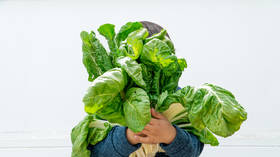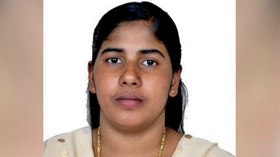Russian official wants ban on vegetarianism for children

Vegetarianism and raw food diets should be legally banned for minors in Russia as they can lead to serious illness or even death, Irina Volynets, the children’s rights commissioner for the Republic of Tatarstan, has told RIA Novosti.
In an interview published on Wednesday, Volynets said a proposal on the issue had already been submitted to the State Duma and the heads of the relevant committees.
“Children’s consumption of inappropriate food or lack of certain products can lead to serious illness and death,” the official told the news agency.
According to Volynets, vegetarianism and ‘raw foodism’ are associated with a deficiency of vital vitamins and minerals, including protein, iron, calcium, zinc, and iodine. She argued that this can lead to a host of serious conditions such as anemia, neurasthenia, stunted growth and development, impaired motor skills, and thyroid hormone imbalance.
The ombudswoman emphasized that the proposed legislation focuses on preventing harm to children. She added that in recent years, Russia has seen several cases of child deaths in families where parents followed unconventional diets.
In the central city of Krasnoyarsk, a two-year-old girl whose parents practiced raw foodism developed anemia and died after a lack of medical care. Forensic pathologists determined that the death had been caused by a coronavirus infection, but the parents had not taken the child to healthcare specialists.
The Russian public was also shocked by the death of a one-month-old child earlier this year in the southern Krasnodar Region. According to police, the child’s father was a vegan blogger who forbade his wife from feeding the youngster breast milk, and ordered her to give him orange juice instead. The baby’s death was reported to be the result of exhaustion and a lack of medical care.
While the complete absence of animal protein in an adult’s diet does not necessarily have a destructive effect on the body, it is harmful for children, according to nutrition specialist Dr. Arseniy Martinchik.
Elena Petryaikina, a pediatric endocrinologist at the Moscow City Health Department, also said that a vegetarian diet is unacceptable for children. She explained that supplemental vitamins, which are often used to compensate for a lack of animal products, cannot fully replace nutrients obtained from food, noting that protein deficiency affects the hormonal status and immunity of the child, as well as inhibiting growth.













